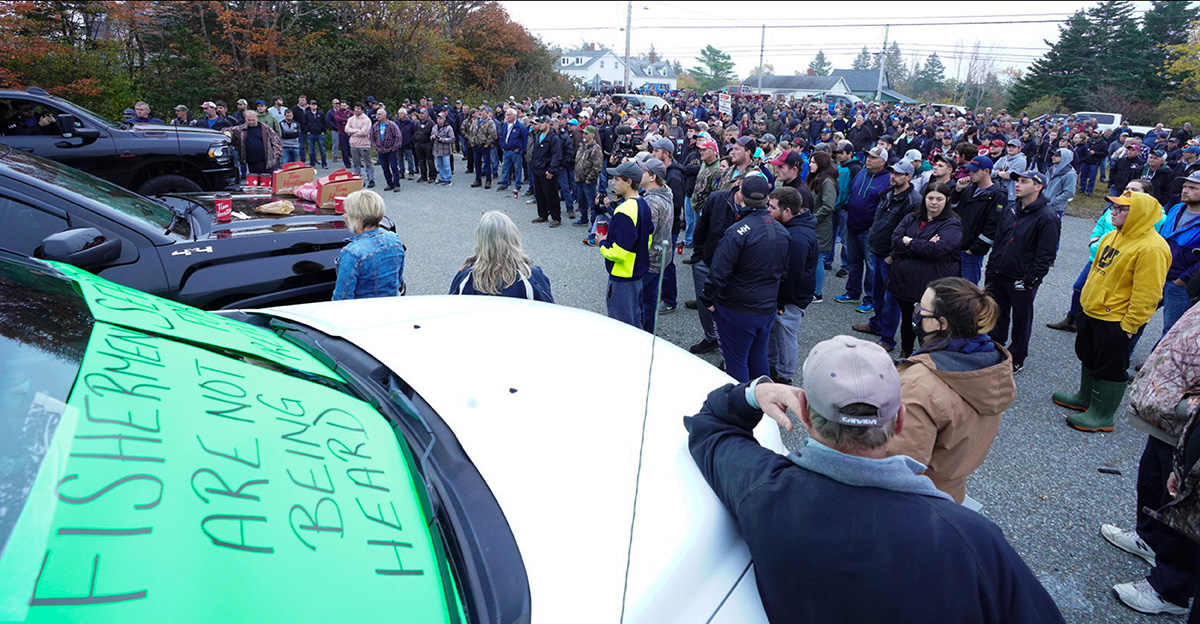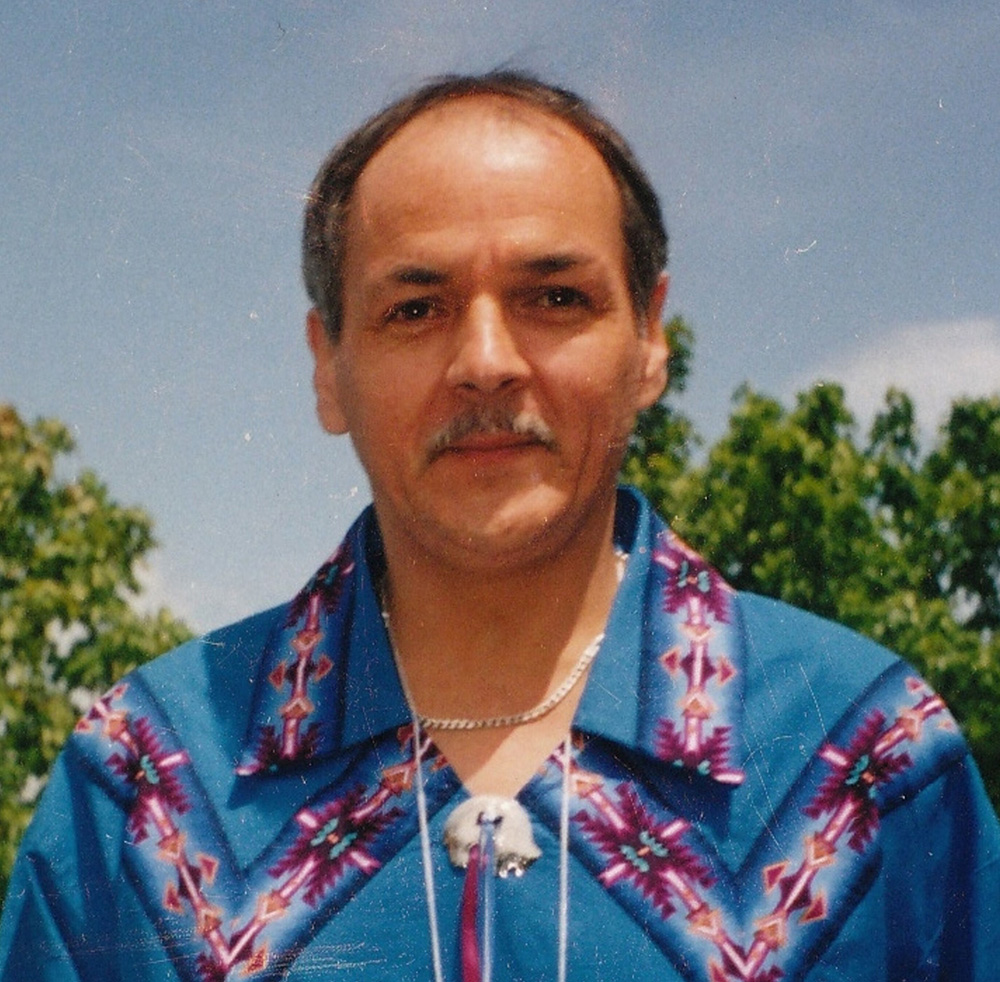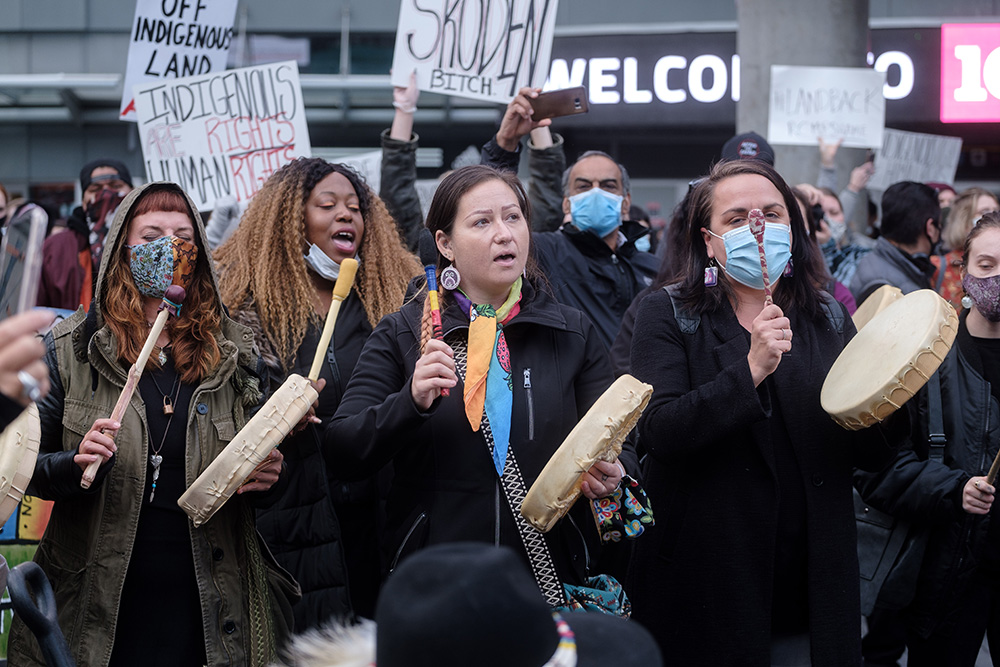This is what a lobster war can do. Parliament has held an emergency debate; charges of racism and hate crimes have been levelled; a lobster pound has been burned to the ground; one man has sustained life-threatening injuries; and there have even been calls for the military to intervene.
Sipekne’katik First Nation Chief Michael Sack says his community faces fresh threats and intimidation every day.
Across the lines of the conflict, Joel Comeau quit his job as head of the Maritime Fisherman’s Union Local 9 because of several menacing messages posted on Facebook, including: “There’s hundreds of us on the way to deal with you, you Nazi scum. The commercial fishermen will be a mass grave by the end of this week. Where they belong.”
Now, late in the day, Ottawa has flooded parts of Nova Scotia with RCMP and the Canadian Coast Guard to keep the peace.
None of it had to happen.
Ottawa has known for months that the situation in Nova Scotia was reaching the boiling point. Assembly of First Nations Chief Perry Bellegarde told Prime Minister Justin Trudeau that his fisheries minister, Bernadette Jordan, was neglecting Mi’kmaq safety and treaty rights as early as Sept. 18.
Ottawa’s dithering has not impressed one longtime lobster fishermen, now retired. “The federal government is pissing me off over this whole friggin’ thing,” Percy Gorman told The Tyee.
Journalists are to blame, too, as far as Comeau’s wife Cindy is concerned. Rather than provide needed context, “The media just brutally crucifies us,” she told the CBC.
The context and how Ottawa fits in? Here goes:
Mi’kmaq fishers in southwestern Nova Scotia, invoking their treaty rights, are catching lobsters out of season for non-Indigenous fishers licensed to harvest the crustaceans. It’s touched off violent disputes with non-Indigenous commercial lobster fishermen. Lines have been cut, and Indigenous traps removed from the water and damaged.
The Supreme Court of Canada’s 1999 Marshall decision found the Mi’kmaq have the constitutional right to what is called a “moderate livelihood” fishery based on 18th-century treaties.
The court attempted to define what that meant.
“A moderate livelihood includes such basics as ‘food, clothing and housing, supplemented by a few amenities,’ but not the accumulation of wealth,” the judgment says.
But that has left questions unanswered about the extent of any fishery allowed under the treaty.
These are crucial questions in a billion-dollar industry, where lobster licences can sell for $1 million in prime areas like southwestern Nova Scotia.
In the two decades since the Marshall decision, no one in the federal government has offered clarification on the critical point of what, exactly, constitutes a “moderate livelihood” for Indigenous fishermen.
But in that time fisheries have been transformed in the name of achieving sustainable harvests.
Response to an overfishing crisis
In 1983, Michael Kirby conducted an exhaustive investigation of the Atlantic fishery for the federal government. The Kirby report found that there were too many fishermen chasing too few fish.
Part of the solution, in addition to the usual financial bailout, was reducing the fishing effort. Licences needed to be bought out to reduce fishing for vulnerable stocks, and those stocks had to be meticulously assessed and protected. Sustainability was the new buzzword. Although Kirby was mainly looking at the offshore fishery, he had similar advice for the inshore.
Ten years later, Canada saw the consequences of not following Kirby’s advice. Newfoundland’s legendary cod fishery collapsed in the early 1990s, triggering the need for a multi-billion-dollar support program for those who lost their livelihood and needed retraining.
Overfishing and years of botched cod quotas from Ottawa brought disaster. The once-great northern cod stock, fished for 400 years by 60 nations, all but disappeared. It is now a shadow of its former self. Today, its status is described as a “vulnerable” fishery. There was a time when you could lower a basket over the side, and pull it back up full of cod.
Percy Gorman got the conservation message loud and clear. With more than 30 years lobster fishing on his resumè, he was one of the first fishermen who embraced Ottawa’s belated goal of a reduced, sustainable fishery.
Ottawa provided incentives for Gorman and fishermen like him to leave the industry. This made room for Indigenous fishermen exercising their treaty right to fish.
The idea was to cap the number of licences. If someone came into the fishery, someone left. After selling his licence, Gorman mentored novice Mi’kmaq fishermen for six years.
After returning from one trip, Gorman and one of his Indigenous apprentices were met at the wharf by government inspectors. They found one illegal undersized lobster in his catch.
“I didn’t want the young fella to be charged. I didn’t want that to be his first experience on the boat. I took the rap. They fined me $2,500.”
Today Gorman is brokenhearted to see his fellow commercial fishermen portrayed as racists and terrorists for opposing fishing out of season. And to see the working relationship between Indigenous and non-Indigenous fishers smashed.
“It won’t stop at the wharf. It will spill into the schools, the streets, the local bars, everywhere people meet. Backing white fellas into a corner isn’t the way to handle this,” Gorman said.
Gorman says Ottawa has learned nothing from the Burnt Church tragedy of 20 years ago — also an ugly and protracted fight between Indigenous and non-Indigenous fishermen over lobster fishing rights in the wake of the Marshall decision.
That three-year battle ended with an agreement that Indigenous fishermen could fish out of season for food and ceremonial purposes and required a licence for other fishing. The war ended.
Now the issues have emerged again.
“As long as their traps remain in the water,” predicts Gorman, “it will be war.”

And it has looked much like war. Chief Mike Sack of the Sipekne’katik First Nation has been assaulted, two lobster facilities were vandalized by commercial fishermen and one was destroyed in a fire RCMP deemed suspicious. An Indigenous fisher’s truck was set on fire. A mob of hundreds of white fishers surrounded Mi’kmaq fishers at a lobster pound and threatened to burn them out.
“This was retaliation,” Sack told the Globe and Mail. “We’re being targeted now. These are hate crimes.”
On Wednesday, a Nova Scotia Supreme Court judge issued an injunction barring interference, blockades or threats against the Indigenous fishers.
It has been Ottawa’s job to negotiate with the Mi’kmaq over what constitutes a moderate livelihood from fishing and when and how it can be pursued. All of it has been done behind closed doors. As Fisheries Minister Jordan explained at a recent press conference, the talks have to be confidential because they are “nation-to-nation.”
All that comes across to commercial fishermen is that the DFO is allowing the Mi’kmaq to fish out of season. If the commercial fishermen did that, they would face huge fines and possible boat seizures. Jordan’s statement that she will be appointing a ministerial representative to speak with commercial fishermen comes across to them as condescending and ill-conceived.
Marilyn Clark, former director of the Nova Scotia Fish Packers Association, says “backdoor deals” have “made it legal for some First Nations to fish outside the season.” Now, she says, DFO is encouraging “a race-based fishery with the potential to instigate a war.”
But the Mi’kmaq have a constitutionally guaranteed right to fish year-round. Ottawa has utterly failed to make that point clearly. All parties have suffered from that failure.
The Marshall decision offers a big clue as to why the federal government might not be interested in publicly assigning a monetary value to the term “moderate livelihood.”
Five of the seven judges on the Supreme Court agreed that Donald Marshall Jr., a Mi’kmaw man, had the right to catch and sell fish under the terms of a 1760 Peace and Friendship treaty with the Crown. That treaty exempted him from compliance with normal regulations. He had no licence, an illegal net, and was fishing eel out of season when he was charged.
Justice Ian Binnie, writing for the majority in siding with Marshall, said this about what “moderate livelihood” meant:
“In my view, the treaty rights are limited to securing ‘necessities’ (which I construe in the modern context, as equivalent to a moderate livelihood), and do not extend to the open-ended accumulation of wealth... ”
“If at some point the appellant’s trade and related fishing activities were to extend beyond what is reasonably required for necessities, as hereinafter defined, he would be outside treaty protection, and can expect to be dealt with accordingly.”
What does a “moderate livelihood” mean? The federal government has failed to offer a definition, perhaps fearful of criticism from all sides.

There is a big policy element at play here. Canada has invested $545 million to bring Atlantic First Nations into the commercial fisheries, including cash to buy commercial licences for individual bands. Membertou, the reserve of Donald Marshall Jr., has just spent $25 million to purchase two offshore lobster licences from fisheries giant Clearwater, which until now had a monopoly on all offshore lobster licences. The licences come with a 90-tonne quota that can be caught from a year-round vessel.
Finally, one of the things Ottawa is talking about with the Mi’kmaq behind closed doors is an Atlantic First Nations Fishing Authority that would deal directly with the Crown. Again, what would that do to the other stakeholders who are barred from the discussion?
From the point of view of ex-fisherman Gorman, Ottawa’s secrecy and dithering has left rural coastal communities in Nova Scotia bitter and divided. First Nations fishermen are asserting their legal rights, and commercial fishermen see a threat to years of conservation efforts promoted by Ottawa.
Even though fisheries scientists say the small Mi’kmaq fishery poses no risk to lobster stocks.
No one on the commercial fishermen side is saying the Mi’kmaq are not welcome in the fisheries. This is part of a letter hand-delivered to Fisheries Minister Jordan by Stephen Bond of the Advisory Group for Lobster Fishery Area 33.
“As an industry we support Indigenous fishermen. The government needs to work with these communities to better protect their ability to access the commercial fisheries instead of it being sold to big companies. All of us together need to work to stop illegal fishing.”
What it will take
When the Sipekne’katik Band launched a small fishery in some of the richest lobster grounds in Nova Scotia last month, they said they were exercising their right under the Marshall decision; creating, licensing, monitoring and regulating their own fishery.
But a second part of the Marshall decision, issued on Nov. 17, 1999, noted “The Court did not hold that the Mi’kmaq treaty right cannot be regulated or that the Mi’kmaq are guaranteed an open season on the fisheries.
“The federal and provincial governments have the authority within their respective legislative fields to regulate the exercise of a treaty right where justified on conservation or other grounds,” the ruling said.
Sack has slammed the RCMP for acting like bystanders while his people were being threatened.
Sack, the prime minister, the minister of fisheries, the minister of Indigenous services and the public safety minister are all correct when they denounce violence, criminality and racism.
But you don’t end wars, including wars over a lobster fishery, by creating heroes and villains. Peace takes dialogue, and that means including all stakeholders in talks where everyone’s future hangs in the balance.
There needn’t have been a collision between Mi’kmaq fishers and their non-Indigenous colleagues. Crafters of fisheries policies must be consistent and clear in their dealings, reminding all they are fishing for living things, not dollars. What we have here is a failure of diplomacy, writ violent.
In three weeks’ time, several hundred commercial fishermen will be at sea beginning their lobster season alongside Mi’kmaq vessels. That is where the ultimate wisdom of Ottawa’s handling of this crisis will be put to the test. ![]()
Read more: Indigenous, Rights + Justice, Federal Politics, Labour + Industry

















Tyee Commenting Guidelines
Comments that violate guidelines risk being deleted, and violations may result in a temporary or permanent user ban. Maintain the spirit of good conversation to stay in the discussion.
*Please note The Tyee is not a forum for spreading misinformation about COVID-19, denying its existence or minimizing its risk to public health.
Do:
Do not: